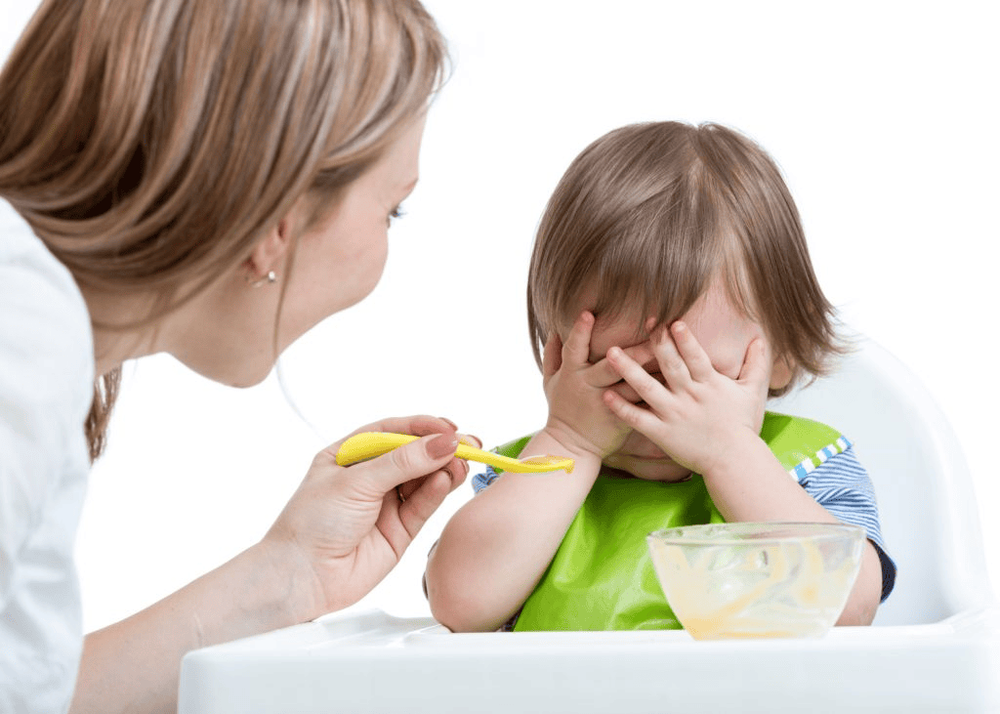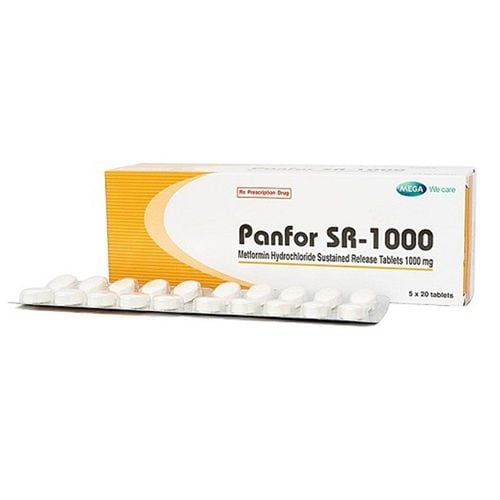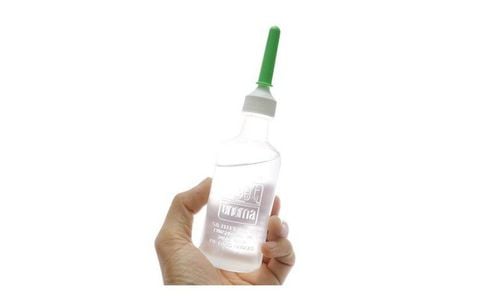This is an automatically translated article.
Anorexia is a common nutritional disorder in children due to many causes: physiological changes, psychological discomfort or some infections,...1. Signs of anorexia children
Children are considered anorexic when there are 2 or more of the following symptoms:
Reluctance to finish the portion or the meal usually lasts more than 30 minutes. Eat less than 1/2 the serving size for your age. Holding food in the mouth for a long time refuses to swallow. Refusing to eat, running away or crying at the sight of food. Have a nauseating reaction to the sight of food. No weight gain for 3 consecutive months.
2. Distinguishing physiological anorexia and pathological anorexia
There are many causes of anorexia in children, the most common are physiological causes and pathological causes. Detail:
2.1. Physiological anorexia
Due to lack of substances from the time of pregnancy: the mother during pregnancy lacks substances such as calcium, iron, zinc, necessary vitamins, ... will cause the fetus to be deficient in nutrients and malnourished. As a result, babies born prematurely, are lazy to breastfeed in the first months after birth. Babies born at full term and with enough weight may also be lazy to breastfeed, quit breastfeeding or when they are eating formula normally, suddenly reduce the amount of food or give up formula altogether.

Biếng ăn sinh lý xảy ra khi trẻ bước vào những giai đoạn học hỏi những kỹ năng mới
Due to physiological changes: when entering stages such as flipping, sitting, crawling, walking, teething, learning to speak,... children often lose their appetite. Even when healthy, children have periods when they eat less for a few days or weeks and still play normally. Those are the times when children are so busy exploring their body's abilities, learning and practicing new skills that they don't pay attention to eating. This stage is common in children 3 - 4 months, 9 - 12 months, 16 - 18 months, ... After that, children will return to eating and drinking normally.
=>> To know how to feed children properly, parents should consult a pediatrician about 8 important milestones in their child's eating journey
2.2. Pathological anorexia
Children have difficulty chewing and swallowing: when they have tonsillitis, teething, tongue fungus, gum abscess or inflammation of the salivary glands, children are afraid to chew and swallow, leading to anorexia. Digestive disorders: symptoms of digestive disorders such as abdominal pain, diarrhea, vomiting or constipation, ... all make the baby lazy to eat, slow to grow. It is a sign of a disorder of contractions, secretions in the stomach or intestinal bacteria.

Trẻ bị biếng ăn khi mắc phải một số bệnh lý nhiễm khuẩn hoặc rối loạn tiêu hóa
Infections: Compared with adults, children's immune systems are very immature, so they do not have many defense mechanisms against pathogens such as bacteria and viruses. Therefore, children are prone to cough, fever, fatigue, ... due to infections of the respiratory tract (pneumonia) or digestive system (gastritis, enteritis,...). When children are infected, the content of vitamins and minerals is greatly lost, especially vitamin A, vitamins of group B, vitamin C, iron, zinc, magnesium, etc., making them lazy to eat or not want to eat. In addition, children with bacterial infections often take antibiotics, which can easily lead to intestinal disorders, causing abdominal distension, indigestion and loss of appetite. Parasitic infections: worms, flukes also cause anorexia in children.
3. How to overcome physiological anorexia, pathological anorexia
3.1. With physiological anorexia
During the period when children are getting used to new skills, parents should calmly monitor whether their children have physiological anorexia. The manifestation of this condition is that the child is not sick, still plays well but eats little. To help the baby eat more, parents can feed the child little by little with a variety of dishes in the main meal.
If the child eats less in the main meals, the parents can give the child several meals a day. At the same time, parents should also give their children their favorite, exotic, easy-to-swallow foods... at this time.

Phụ huynh có thể cho trẻ biếng ăn sinh lý ăn thành nhiều bữa nhỏ trong ngày
Because physiological anorexia is inevitable, parents should pay attention to some common mistakes when feeding babies such as forcing children to eat too much because it can cause fear and turn into psychological anorexia. harm later. However, if after 2-3 weeks, the child's anorexia status does not change more positively, the child loses weight or loses weight within a month, parents should take the child to a pediatric or nutrition specialist to be examined. timely advice and support.
3.2. With pathological anorexia
When sick, children are often tired leading to anorexia, lazy to eat. The amount of food loaded into the body is less, leading to nutritional deficiencies, making the baby tired and less appetite. Therefore, parents need to pay attention to ensuring a reasonable source of nutrients in their children's daily diets to restore their physical strength and increase their resistance. Some important notes parents should take are:

Chế biến và trình bày món ăn hấp dẫn để bé ăn được nhiều hơn
Make and present food more attractive to attract children and stimulate their appetite. Setting up a diet for your baby needs to balance 4 groups of substances: protein, carbohydrates, fats, vitamins and minerals. During the treatment of infectious diseases, it is necessary to fully supplement vitamin A, vitamin B group, vitamin C and minerals such as magnesium and zinc for children. Do not abuse antibiotics because it easily causes an imbalance of intestinal microflora, causing bloating, indigestion and loss of appetite. Relieve pain when babies teething or mouth ulcers. Create a happy and comfortable meal atmosphere for children to eat more deliciously. Anorexia in children is caused by many causes, according to which parents need to distinguish physiological anorexia and pathological anorexia to find ways to help children eat well to gain weight or visit children early. For children with pathological anorexia, parents need to go to medical facilities to be consulted by nutritionists on appropriate diet and nutrition for each child, and it is important in Mealtimes must create a comfortable atmosphere that helps children eat well. Children should not be "forced" to eat, should not scold or threaten, but must find out the cause of anorexia to overcome.
If the child's anorexia persists for a long time, parents should supplement children with supportive products containing lysine, essential micro-minerals and vitamins such as zinc, chromium, selenium, and B vitamins to help fully meet their needs. nutritional requirements in children. At the same time, these essential vitamins also support digestion, enhance nutrient absorption, help improve anorexia, and help children eat well. Parents can also apply dietary supplements and functional foods derived from nature for easy absorption by the baby. The most important thing is that the improvement of the baby's symptoms must take place over the long term. Combining many types of functional foods at the same time or changing many types in a short time can make the baby's digestive system unable to adapt and completely not good. Therefore, parents must be really persistent with their children and regularly visit the website vimec.com to update useful baby care information.













